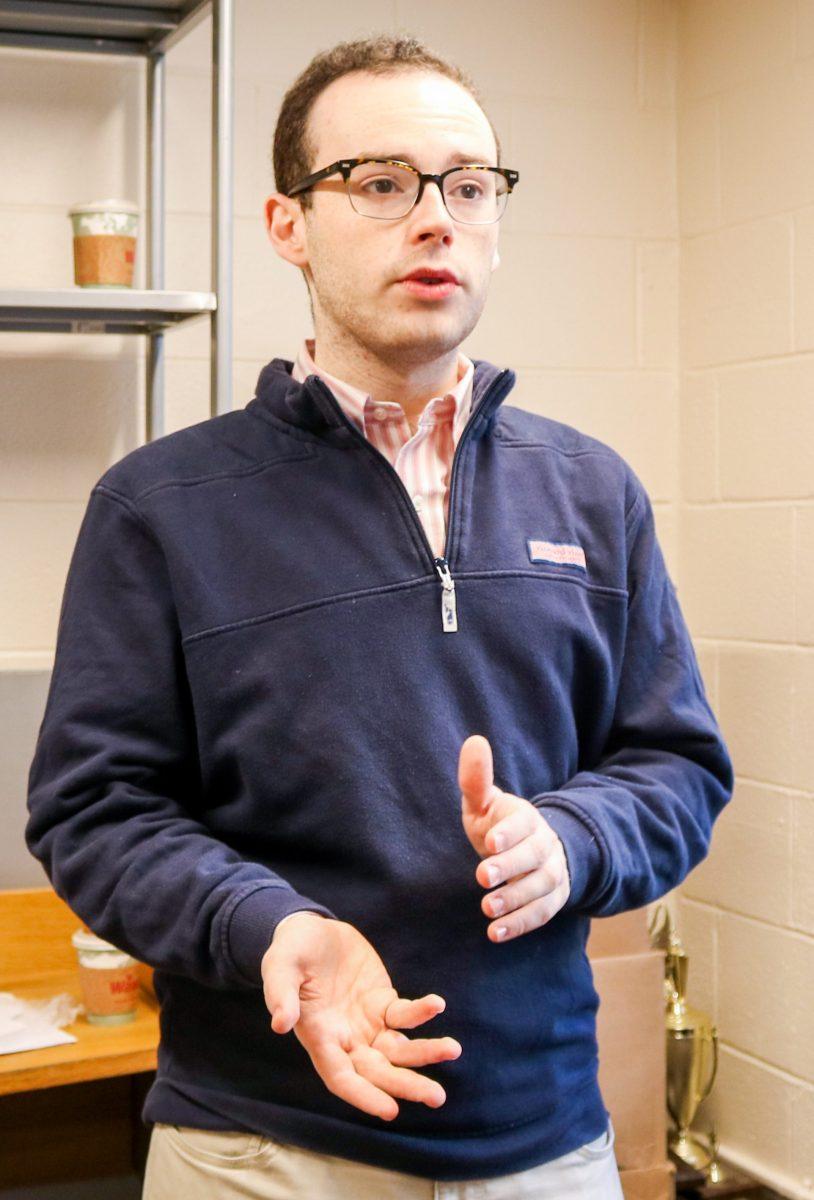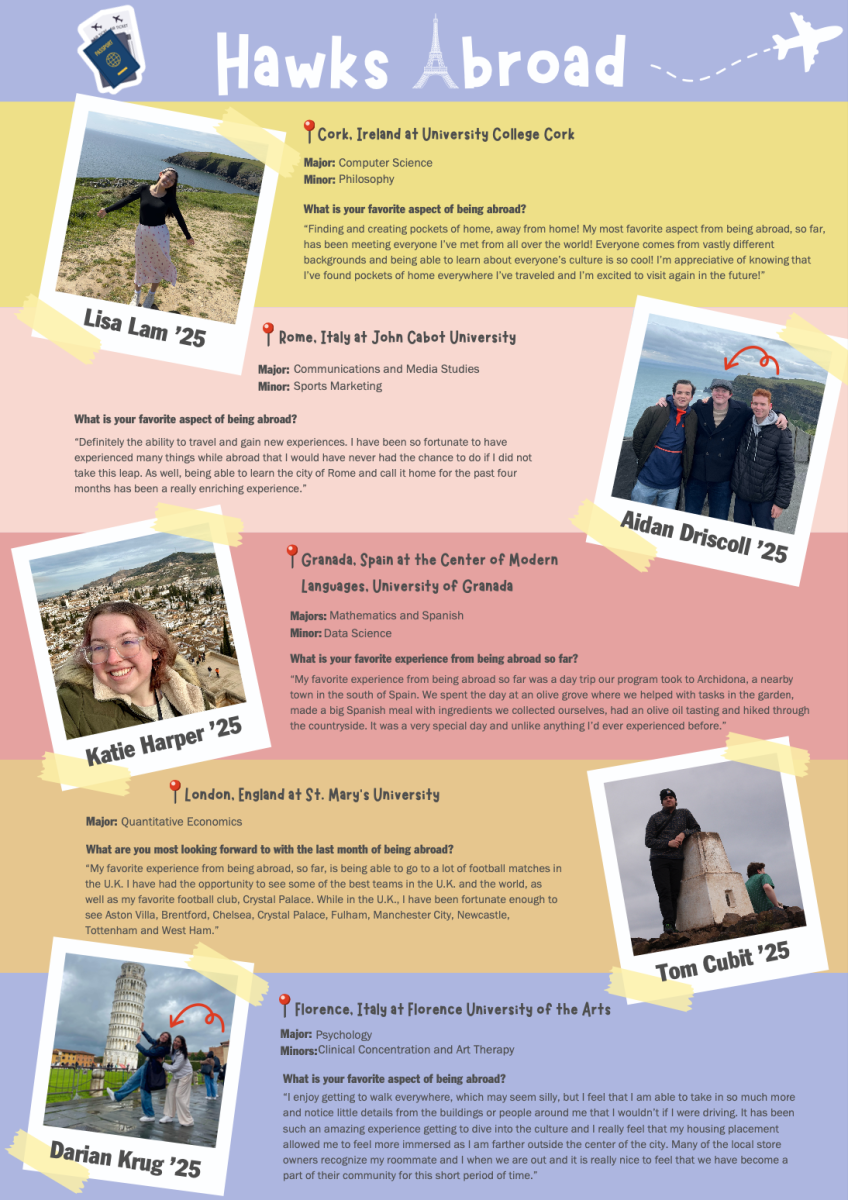A newcomer explores public speaking and speech
It’s a Monday night, and I find myself at the Bala Cynwyd library surrounded by a handful of people in a U-formation exchanging greetings and making small talk. I gaze around at the diverse group of people in the room. Despite our differences, we are all here for the same reason.
At exactly 6:30 p.m. Jaqueline Culbreth makes her way to the podium at the front of the room. She makes a show of putting on a hat that she has brought with her.
“I do not like them, Sam-I-am. I do not like green eggs and ham,” she begins her speech.
And with that, the Main Line Speaks Toastmasters meeting is off to a start. The Main Line Speaks Toastmasters Club is a chapter of the Toastmasters International organization, a group with the sole purpose of helping individuals from all over the world improve their public speaking skills. There are around 15 attendees at this meeting, and most of them are already members.
With the hat as a prop, Culbreth switches back and forth between characters, narrating the beginning of the famous Dr. Seuss story. She is one of three members giving a prepared speech at tonight’s meeting and her intro invites a collective chuckle from the group.
The meeting consists of three parts: table topics, prepared speeches, and evaluations. The structure is designed to exercise what Toastmasters believes is essential to the improvement of public speaking: practice.
Table topics are short, one-to-two minute impromptu speeches that can be about anything and are given by a few randomly chosen members each meeting.
I heard table topics ranging from vacations to Christmas traditions, including hiding a pickle ornament in a Christmas tree. The catch is, the speakers have no time to prepare and have to speak for at least a minute on their given topic with whatever comes to their mind.
Following table topics, the prepared speeches are given. These speeches are given by the older members of the club, and they are wonderfully presented. It is clear to see that these members, with the help of Toastmasters, are well on their way to mastering the art of public speaking.
“I think Toastmasters is a wonderful example of how when you take baby steps confidence can grow,” chapter president Frank Felsburg said.
Through practice and gaining confidence, Felsburg sees members change in their communication and leadership qualities.
“This is a club where you really get out of it what you put into it,” Felsburg said.
Main Line Speaks Toastmasters Club has a very welcoming atmosphere and it is clear that every member really wants to be there. I heard one member describe it as “formal but friendly,” and that description fits the club perfectly.
“It’s a great club!” member Cheryl Hurley keeps repeating to me when she finds out I am a guest visiting for the first time.
Though I feel very welcomed by the members, I still breathe a sigh of relief when the meeting ends and I have not been called on to demonstrate the extent of my public speaking skills. Like most people in the world, public speaking isn’t my strong suit, and the thought of it definitely makes me nervous.
This is completely understandable according to Vanessa Kraus, professor of English and public speaking at Saint Joseph’s University.
She informs me that speaking is the number one fear of the human condition, topping even cancer or terrorism. She attributes this to many individuals being worried that they aren’t an expert on their topic and will be judged or called out by others.
As a professor of a public speaking class at St. Joe’s, she describes the amazing transformation she sees in students from the first week to the last week, comparing the growth that the students undergo to watching a plant grow and flower.
“The best part about public speaking is that it cross-pollinates all majors, anyone can take it,” Kraus said.
I was shocked when she told me that the three factors of influence in any given speech are words, tone, and nonverbal, with words holding seven percent of influence, tone holding 38 percent and nonverbal holding 55 percent.
This means that more of the judgement of a speech is based off of external factors such as eye contact, hand gestures, facial expressions, and appearance than on the actual words being said. Kraus also addresses these factors in her class, helping students eliminate fillers and break bad habits.
“He/she who communicates best, wins,” Kraus said.
In the world that we live in today, learning to speak effectively is essential. Any conversation we hold with someone is public speaking and serves a purpose. Kraus emphasizes the importance of public speaking by explaining how it is a powerful tool to affect change and that we have the ability to change someone’s life or world through speech.
It is clear that Kraus is very passionate about public speaking and the influence it holds in our lives. She encourages everyone to step outside their comfort zone and take the opportunity to develop public speaking skills.
“It’s a skill set that doesn’t leave. It’s forever,” she said.
Since most of the world’s population would rather have teeth pulled than stand up in front of a crowd and give a speech, I was surprised when I heard this was what Julian Lutz, ’19, does for fun.
As a member of the St. Joe’s speech and debate team, “Villiger,” Lutz spends many hours doing what numerous people worldwide would never freely do, performing speeches to be judged in competitions.
St. Joe’s has a nationally ranked debate team that participates in competitions mainly up and down the East Coast almost every weekend. The competitions are all-day events, normally lasting from 8 a.m. to 5 or 6 p.m. Along with these competitions, the team, made up of seven students, practices weekly.
Even though being on the team is demanding and requires a large amount of time commitment, Lutz said that it is fun. He said that he enjoys being on the team because it teaches him how to think clearly, express his thoughts, prepares him for job interviews, and helps him learn about himself.
“A good idea that doesn’t get shared isn’t helpful,” Lutz said. “It’s not good enough just to have a good idea. You have to have a good way to present it.”
He agrees with Kraus in that judgement from others is a major fear many face when approaching public speaking.
“I think we’re all afraid to get judged. It’s scary to make a huge mistake and risk being laughed at,” Lutz said. “I don’t think you ever stop being nervous, but you learn to enjoy it.”
While public speaking may not be for everyone, it is important to realize that it plays a major role in our day to day lives. There are many ways for individuals to build up confidence in their public speaking skills, be it joining a Toastmasters club, taking a public speaking class, or just throwing themselves right into it. Felsburg, Kraus, and Lutz all agree that practice is key.
While I don’t feel I’ve become a master public speaker from attending only one of Toastmasters meetings, what I have learned is sure to come in handy the next time I give a class presentation. Until then, I’ll just be happy it’s Lutz performing in the debate competitions instead of me.








































